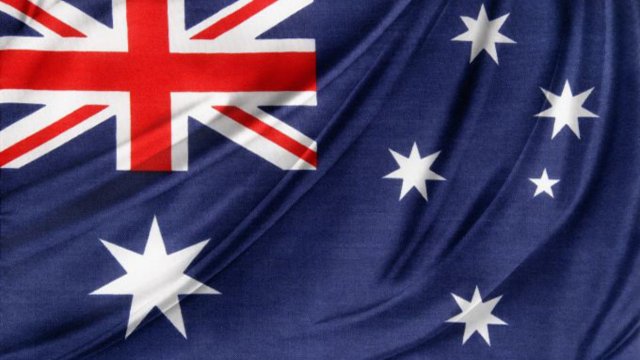In early morning trading in Tokyo, the U.S. Dollar and the Japanese Yen lost ground, as Asian share prices propped up U.S. stocks as a result of investors’ optimism that forthcoming bold and aggressive economic measures would be implemented not long after President-elect Obama is sworn into office on Tuesday, January 20, at 12:00 pm (EST).
The following Forex news reports are the latest developments of the Forex market. The news reports are updated frequently and include all the events that affect the foreign exchange trading industry.
Most Recent
NEW YORK - A growing number of international retail FX brokers are leaving the US market, with London-based ODL Securities becoming the latest to ditch its US operations to avoid meeting capital requirements to operate there.
In early morning trading in Tokyo, the Japanese Yen slipped broadly after U.S. stocks saw some gains on optimism about a new U.S. stimulus package. The Japanese Yen’s retreat against the Euro enabled the single currency to extend its rebound from a 5-week low against the U.S. Dollar.
Top Regulated Brokers
Most major currencies traded narrowly today; the Euro struggled to advance while the Japanese Yen found support as global economic pressure increases and investors are paying attention to the forthcoming interest rate decision by the European Central Bank. Investors expect that the ECB will have to reduce interest rates today in order to curb inflation in the Euro Zone.
The U.S Dollar edged down slightly from a 1-month high versus the Euro today but remained fortified as investors are confident that the European Central Bank will have to reduce interest rates in the Euro Zone by week’s end. According to most analysts, the ECB should reduce interest rates by 0.5% from the current 2.5% during Thursday’s meeting, in order to curb the potential protracted economic downturn in the Euro Zone.
The Euro lost ground against the U.S. Dollar and the Japanese Yen in early trading today, touching on one month low as investors anticipate that the ECB will cut interest rates later this week. The Euro’s extended losses also was pulled down by the possibility that Standard & Poor, the international rating agency, will downgrade Spain's top "AAA" and as such, heightened concerns about the Euro Zone’s future economic outlook.
The Japanese Yen rose today, hitting a 1-month high versus the Euro, as bad U.S. jobs data released last week intensified fears that the global recession would continue and, as such, reduce demand for higher-risk assets.
Today, the U.S Dollar slipped against the Japanese Yen ahead of the payroll data from the U.S., which is due out later in the day. It is expected that this data will show a significant reduction in jobs in the U.S., while the Euro fell following a mixed bag of poor economic data from the Euro Zone. U.S. job data for December is expected to fall by 550,000 jobs and also show an unemployment rate higher than previous months.
The U. S. Dollar and the Japanese Yen jumped at the expense of currencies which are yielding higher returns as declining falling shares impacted risk demand. Meanwhile, the Euro was under selling pressure because of dismal data which highlighted worries about a poor state of the economies in the Euro Zone.
Bonuses & Promotions
The Euro was able to reverse earlier losses against the U.S. Dollar which saw across-the board-losses in Wednesday trading. The cause was generally thought to be investor concerns over the continuing deteriorating American economy, and the expectations that U.S. interest rates will remain at their lowest level in recent history.
The U.S. Dollar saw some broad gains today, touching on its highest level in more than 3 weeks versus the Japanese yen, as the rising prices of shares helped to ease risk aversion, subsequently putting the Yen under pressure to sell. According to Steve Barrow of London’s Standard Bank, because stock prices are firming somewhat, there is some “bias towards risk taking.” As a result, the Japanese Yen is seeing the most trading activity.
In very light London trading, the U.S. Dollar lost value against the Euro as well as a basket of major currencies today. Traders are actively reducing their long positions in the greenback before the end of the year, in what are the last two remaining trading days of 2008. According to a UBS currency strategist, investors don’t want to be exposed and in the wrong position as they head into a new fiscal year, so they’re actively clearing out their current positions.
The U. S. Dollar fell today, hobbled by a bleak outlook for the economy of the United States as well as the move by the U.S. Federal Reserve bank which released additional liquidity into the U.S. banking system. However, the Swiss Franc rose on geopolitical risks because of the air strikes by the Israeli warplanes on the Gaza Strip over the past three days. The Pound Sterling continued its downtrend, slipping to a record low versus the Euro and a group of currencies in early trading in London, as bleak economic data and expectations that interest rates in the United Kingdom will fall below interest rates in the Euro zone negatively impacted the Pound Sterling.
Versus a basket of currencies and the Japanese Yen, the U.S. Dollar lost ground in very thin holiday trading today while investors braced themselves for economic data from the United States that is likely to add to an already grim outlook on the future of the American economy.
The U.S Dollar dropped versus the Euro and a group of currencies today as investors awaited a series of economic data from the United States, which will be released later in the day, in order to find clues on the extent of the long recession.



